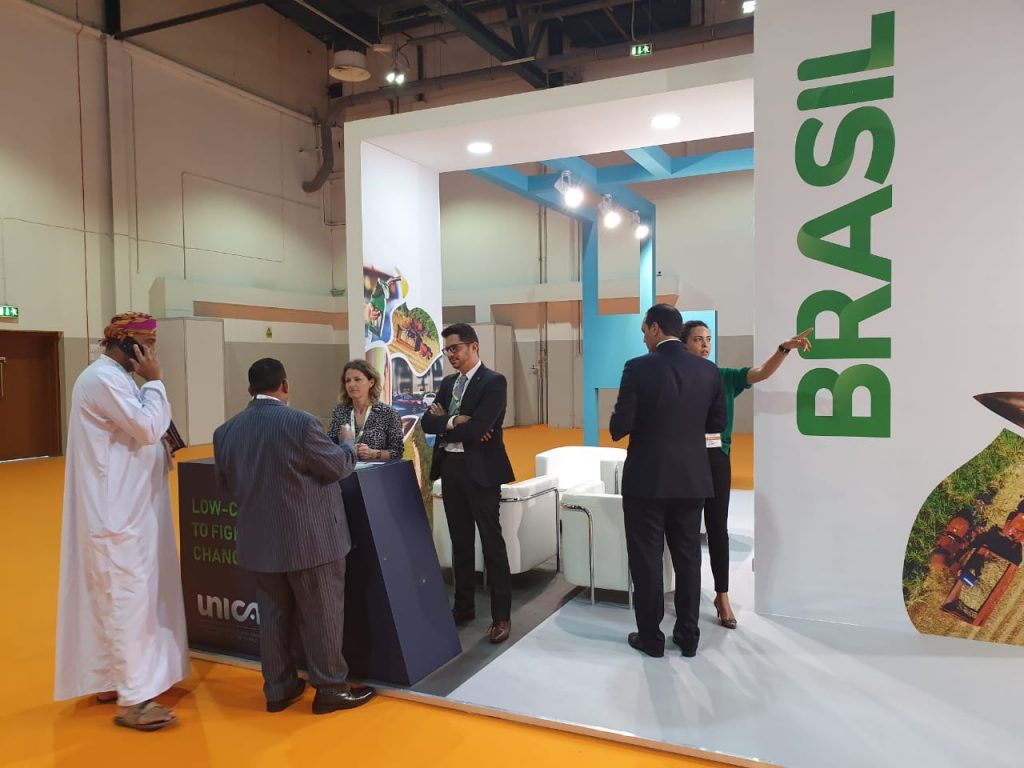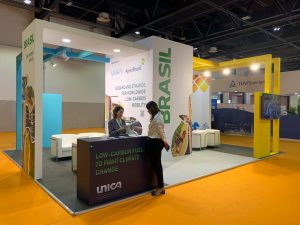São Paulo – WETEX 2019, a water, energy, technology and environment exhibition started this Monday (21) in Dubai, United Arab Emirates. The Arab Brazilian Chamber of Commerce participates with its own stand for the second year running, and this edition features a partnership with the Ministry of the Environment and the Brazilian Sugarcane Industry Association (UNICA). The event runs through the next Wednesday (23).
UNICA institutional relations coordinator Julia Tauszig is at the stand to promote sugarcane ethanol. Brazil is the top producer of sugarcane ethanol and one of the world’s largest ethanol producer, second only to the United States, which also produces it from corn.
Tauszig said that there are currently three main challenges that ethanol can solve. The first one is the climate change. “The cities are committed to the reduction of CO2, and ethanol brings about a 90% reduction of CO2 compared to gasoline,” she said.
The second challenge is the air quality, which she says is also considerably improved by using ethanol. “São Paulo reduced its pollutants from 54 to 29 micrograms per cubic meter, and now the air has a much higher quality than big cities in China and India, for example,” she said.
The third main challenge is the dependence on the oil. “No country now wants to rely on oil. The electric car is an alternative, but it’s only worthy it depending on the country’s energy matrix. Ethanol may be a transport solution for a low CO2 emission that does not require creating a large infrastructure,” Tauszig said.
(Story continues after photo gallery)
She said that Brazilian gas has now 27% of ethanol in its composition. “The idea here in the Arab countries is to bring this Green Petrol concept, a gas with a high content of ethanol in the mix. In most countries, the concentration is 5% or 10%, and over 20% is considered a high mix,” she explained. “It’s an existing, readily available solution that doesn’t need large adaptations,” she reiterated.
Tauszig said that UNICA is searching for partners in the Arab countries, in both the public and private sector, to promoting Green Petrol and creating a market and a demand, incorporating ethanol to gas and so reducing the negative environmental impacts that oil creates. But she says that the countries must have public encouragement policies, so it must be a public-private partnership.
“Today was a quite interesting, busy day. Many people from both public and private bodies were interested. I talked to people from different countries, such as Turkey, Morocco and the UAE, and they were interested,” she reported.
“UNICA came to talk about the importance of ethanol for the sustainability, showing it as a fuel alternative, a sustainable transit project that influences CO2 reduction,” said Arab Chamber Institutional Relations manager Fernanda Baltazar, also in Dubai.
For its turn, the Ministry of the Environment took a park concession project to WETEX. “Although it doesn’t seem to have a connection, they are dealing with economy in sustainable terms, and injecting money in parks, environmental preservation, is bringing to the show a green economy in the sense of investing in conservation, infrastructure and respect for the diversity, and therefore showing the UAE and other investors in the region how it can be developed. The concession project starts in 60 days for some parks in the South and Northeast of Brazil,” Baltazar said.
Arab Chamber events coordinator Tâmara Machado says that the main goal of the Arab Chamber in WETEX is showing that Brazil is very important in the renewable, clean energy and sustainability sector. “And also establishing the Arab Chamber place as a business broker between Brazil and the 22 Arab countries,” Machado added.
Translated by Guilherme Miranda







